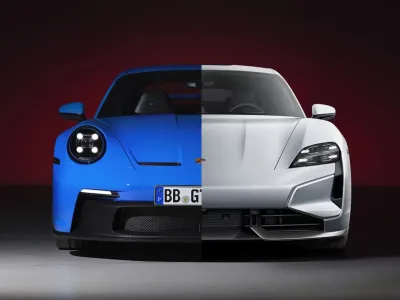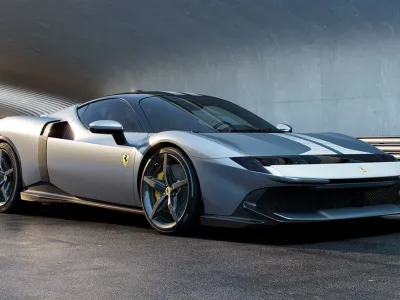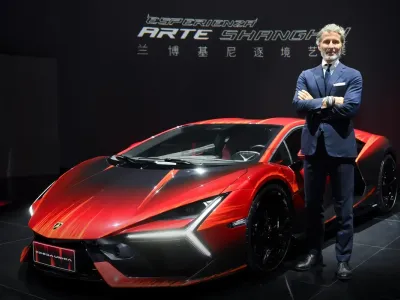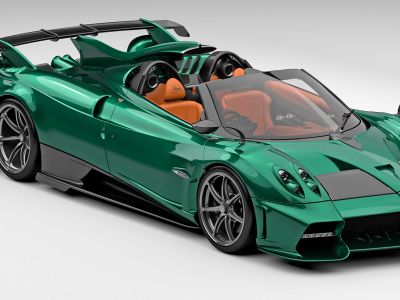The ingredient that can make or break the new car industry
"If cobalt falls into the hands of the Chinese, yeah you won't see electric vehicles (EV) being produced in Europe, etc. They are waking up too late.
I think it's because the car industry has never had a supply chain problem before".
During the 2018 FT Commodities Global Summit in Lausanne, Switzerland, Ivan Glasenberg, CEO of Glencore, the biggest cobalt-mining company shared with Reuters his vision of a future in which “[China is] not going to sell batteries to the world, more than likely they’ll produce batteries in China and sell electric vehicles to the world”. Much anxiety spreads over the development of this commodity’s market because cobalt is a key chemical element of the new generation of batteries powering consumer electronics and EVs, for which is the most expensive component.
To avoid the risk of a monopoly, companies acknowledge the need for a shift from cobalt. Decreasing the industry reliance on it has also other important benefits, such as reducing exploitative extractive practices in the developing world and helping tackle climate change faster and more effectively.
But is there any viable alternative for these Western batteries and EVs manufacturers that are – in the words of Ivan Glasenberg – “waking up too late”?
First, why is this question so important? Nowadays, the price of an EV battery averages the $200 per Kw/h, making it still too expensive compared to the benefits it can provide in the eyes of the average consumer. Despite a price drop of 70% in just six years, it is increasingly difficult to further reduce costs while improving battery efficiency. Analysts say that EVs will be comparable to those of internal combustion engine (ICE) cars price when the Kw/h cost falls to $100, and they forecast this will happen around 2030.

Most of the global cobalt reserves come from the Democratic Republic of Congo, and about 80% of the chemical mined is refined in China. Other resources shipped especially in Finland, are still owned by China Molybdenum, the second-largest mining company after Glencore, and partially owned by the government.
Many experts are worried about the potential Chinese monopoly over global cobalt resources. In fact, not only China owns the bulk of the global cobalt chemical production (), but GEM, a Chinese battery recycler, also signed an agreement with Glencore itself for a third of its cobalt production over the next three years.
An expected surge in EVs popularity could push the cobalt demand from last year’s 9,000 tonnes up ten times in less than 10 years. This would eventually sharply increase prices as well. Fairly stable in 2016, varying from $22,000 per tonne to $29,000, 2017 has seen a continued growth that peaked just on March 1st, 2018 at over $93,000 per tonne.
A research by Xianlai Zeng and Jinhui Li of Tsinghua University in Beijing, published in November 2015, claims that due to its scarcity and the increasing demand for consumer electronics and electric vehicles in China, cobalt reserves would sustain the market only until 2021, even if all the end-of-life products were recycled. To extend the supply potential up to at least 2035 an effective recycle loop of cobalt-containing waste is also needed.
The scarce nature of cobalt, the increasing prices, and the fear for a monopoly over this crucial market are bound to push forward alternative and more efficient technologies. There is also the very relevant ethical problem of cobalt mining that often involves children labour. Different companies are researching and none other than Panasonic might already be onto something.

The battery manufacturer, Tesla’s partner since 2010 and sole batteries supplier, has already substantially cut down the use of cobalt in its own batteries says Kenji Tamura, the head of Panasonic’s EV batteries business. In fact, Tesla’s recent Model 3, achieved the highest energy density in a battery while reducing the cobalt use and a Kw/h price below the industry average at $190.
Forecasting a cobalt shortage in the not-so-distant future, Panasonic is actively developing a new technology to eliminate the dependency on the rare chemical. While in initial models cobalt accounted for a quarter of the active metals in a battery, the proportion has already been brought down to around 5% with the aim to reduce it to 0.
Panasonic is not the only one researching for a breakthrough in lithium-ion battery technology. In Ithaca, in the state of New York, a start-up called Conamix founded in 2014 has also raised several million for its project of a cobalt-free electrode.
This single new technology development is extremely interesting to follow as it will have a notable ripple effect on many aspects of society’s life, from human rights to climate change control, to the balance of countries’ economic power.
If you like what you read here and you would like to support me in developing this platform you can do it here:
IF YOU WOULD LIKE TO SUPPORT ME AND THIS WEBSITE’s DEVELOPMENT







